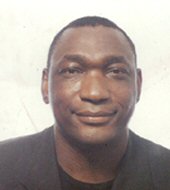Summary
Definition
History and exam
Key diagnostic factors
- cold exposure and body temperature <95°F (<35°C)
- impaired mental status
- shivering
- frostbite
Other diagnostic factors
- tachypnea, tachycardia, hypertension
- respiratory depression, bradycardia, hypotension
- coma and apnea
- cold-induced diuresis
Risk factors
- trauma
- drowning
- general anesthetic use
- substance misuse
- impaired cognition
- hypothyroidism
- stroke
- Parkinson disease
- homelessness
- extremes of age
- gram-negative septicemia
- immobility
- use of certain drugs
Diagnostic tests
1st tests to order
- core temperature measurement
- 12-lead ECG
- CBC
- serum electrolytes
- blood glucose
- ABG
- clotting screen
- chest x-ray
Tests to consider
- serum creatinine kinase
- myoglobin levels
- end-tidal CO₂
- ultrasound
Treatment algorithm
mild hypothermia: >90°F to 95°F (>32°C to 35°C)
moderate or severe hypothermia not in cardiac arrest: ≤90°F (≤32°C)
moderate or severe hypothermia in cardiac arrest: ≤90°F (≤32°C)
Contributors
Authors
Emmanuel Atta Agaba, MD, FRCSEd, FACS

Attending Surgeon
Assistant Professor of Surgery
Montefiore Medical Center at Albert Einstein College of Medicine
Bronx
NY
Disclosures
EAA declares that he has no competing interests.
Acknowledgements
Dr Emmanuel Agaba would like to gratefully acknowledge Dr Rafael Barrera and Dr Juan Jose Gilbert, previous contributors to this topic.
Disclosures
RB and JJG declare that they have no competing interests.
Peer reviewers
Wail Malaty, MD
Clinical Professor
Department of Family Medicine
University of North Carolina
Chapel Hill
Assistant Program Director
MAHEC Rural Family Medicine Residency
Hendersonville
NC
Disclosures
WM declares that he has no competing interests.
James S. Milledge, MBBS
Honorary Professor
Department of Physiology
University College London
London
UK
Disclosures
JSM declares that he has no competing interests.
Peer reviewer acknowledgements
BMJ Best Practice topics are updated on a rolling basis in line with developments in evidence and guidance. The peer reviewers listed here have reviewed the content at least once during the history of the topic.
Disclosures
Peer reviewer affiliations and disclosures pertain to the time of the review.
References
Key articles
Paal P, Pasquier M, Darocha T, et al. Accidental hypothermia: 2021 update. Int J Environ Res Public Health. 2022;19(1):501.Full text Abstract
Lott C, Truhlář A, Alfonzo A, et al. European Resuscitation Council guidelines 2021: cardiac arrest in special circumstances. Resuscitation. 2021 Apr;161:152-219.Full text Abstract
Panchal AR, Bartos JA, Cabañas JG, et al. Part 3: adult basic and advanced life support: 2020 American Heart Association guidelines for cardiopulmonary resuscitation and emergency cardiovascular care. Circulation. 2020 Oct 20;142(16 Suppl 2):S366-468.Full text Abstract
Dow J, Giesbrecht GG, Danzl DF, et al. Wilderness Medical Society clinical practice guidelines for the out-of-hospital evaluation and treatment of accidental hypothermia: 2019 update. Wilderness Environ Med. 2019 Dec;30(4 Suppl):S47-69.Full text Abstract
Reference articles
A full list of sources referenced in this topic is available to users with access to all of BMJ Best Practice.
Differentials
- Sepsis
- Hypothyroidism
- Hypoglycemia
More DifferentialsGuidelines
- Clinical staging of accidental hypothermia: the revised Swiss system recommendation of the International Commission for Mountain Emergency Medicine (ICAR MedCom)
- European Resuscitation Council guidelines 2021: cardiac arrest in special circumstances
More GuidelinesCalculators
Hypothermia outcome prediction after ECLS (HOPE) score
More CalculatorsLog in or subscribe to access all of BMJ Best Practice
Use of this content is subject to our disclaimer